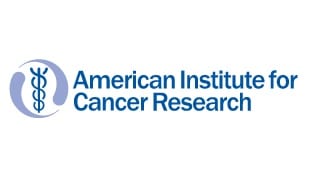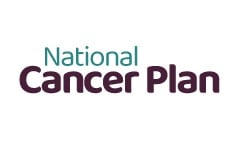A letter from Laura
You’ve found your way to this page about reducing cancer risk. Perhaps you are interested in reducing your risk of getting a serious illness, cancer included. You may even know that you have a condition or risk factor that increases your risk of cancer. Or perhaps you, yourself, have cancer and you want to know if there’s anything you can pass on to your family members to help them reduce their risk.
A letter from Laura
Though most cancers are not directly inherited, sometimes we have certain genes that can “misbehave” later in life (for example, from exposure to certain chemicals, radiation, foods, alcohol, or unhealthy lifestyles) and lead to cells becoming cancerous. In fact, “approximately 42 percent of cancer cases . . . in the United States are linked to lifestyle related risk factors including excess weight, poor diet and physical inactivity.”1New Study Links Cancer and Cancer Deaths to Lifestyle Factors. American Institute for Cancer Research. Viewed June 15, 2022. That means that even if we can’t change our genes, we might be able to change the conditions that would spur them on to cause trouble.
All this is to say that there is often a lot you can do to reduce your chances of getting cancer (or preventing it from coming back). The even better news is that almost everything you would do to reduce your cancer risk is also going to reduce your risk for getting other serious illnesses such as heart disease or diabetes. And the best news is that when you live an anticancer lifestyle you will likely feel better, physically, mentally, and emotionally.
The anticancer lifestyle is about creating conditions in your body to make it less hospitable to cancer and more conducive to health. This takes some commitment, planning, and work on your part. Many consider the effort worth it. Most people who take this on report that even though they started living healthier to prevent a future event, cancer, their quality of life is better in the present.
A patient of mine, Eddie, who had advanced melanoma, was frequently telling me that he was planning like a pessimist and living like an optimist. He knew things could veer off the tracks at any moment. So he planned in order to stay on track as well as to be ready in case things derailed. Meanwhile, he was optimistically living each day with as much joy as he could muster. His planning also meant he thought about his two sons and their cousins and friends who loved being out at the beach like he did. Eddie knew that they, too, were at risk for getting melanoma from unsafe sun exposure. So he arranged for them all to have a workshop from a really cool surfer dude turned dermatologist who taught them “sense in the sun.” He was optimistic that they could avoid getting the same serious skin cancer he had.
On this page we offer guidance on self-care practices, healthy habits and specific complementary therapies that may help reduce your risk of cancer. We offer to be a virtual guide by your side as you explore adding years to your life and life to your years.
Take care,
Laura
Laura Pole, MSN, RN, OCNS
Laura Pole is senior clinical consultant for CancerChoices. Laura is an oncology clinical nurse specialist who has been providing integrative oncology clinical care, navigation, consultation, and education services for over 40 years. She is the co-creator and co-coordinator of the Integrative Oncology Navigation Training at Smith Center for Healing and the Arts in Washington, DC. Laura also manages the “Media Watch Cancer News That You Can Use” listserv for Smith Center/Commonweal. In her role as a palliative care educator and consultant, Laura has served as statewide Respecting Choices Faculty for the Virginia POST (Physician Orders for Scope of Treatment) Collaborative as well as provided statewide professional education on palliative and end-of-life care for the Virginia Association for Hospices and Palliative Care.
For CancerChoices, Laura curates content and research, networks with clinical and organizational partners, brings awareness and education of integrative oncology at professional and patient conferences and programs, and translates research into information relevant to the patient experience as well as clinical practice.
Laura sees her work with CancerChoices as a perfect alignment of all her passions, knowledge and skills in integrative oncology care. She is honored to serve you.
Laura Pole, MSN, RN, OCNS
Laura Pole is senior clinical consultant for CancerChoices. Laura is an oncology clinical nurse specialist who has been providing integrative oncology clinical care, navigation, consultation, and education services for over 40 years. She is the co-creator and co-coordinator of the Integrative Oncology Navigation Training at Smith Center for Healing and the Arts in Washington, DC. Laura also manages the “Media Watch Cancer News That You Can Use” listserv for Smith Center/Commonweal. In her role as a palliative care educator and consultant, Laura has served as statewide Respecting Choices Faculty for the Virginia POST (Physician Orders for Scope of Treatment) Collaborative as well as provided statewide professional education on palliative and end-of-life care for the Virginia Association for Hospices and Palliative Care.
For CancerChoices, Laura curates content and research, networks with clinical and organizational partners, brings awareness and education of integrative oncology at professional and patient conferences and programs, and translates research into information relevant to the patient experience as well as clinical practice.
Laura sees her work with CancerChoices as a perfect alignment of all her passions, knowledge and skills in integrative oncology care. She is honored to serve you.
Worldwide, an estimated 44.4% of cancer deaths are attributed to risk factors that you may have some control over:2GBD 2019 Cancer Risk Factors Collaborators. The global burden of cancer attributable to risk factors, 2010-19: a systematic analysis for the Global Burden of Disease Study 2019. Lancet. 2022 Aug 20;400(10352):563-591.
- Lifestyle factors include use of tobacco or alcohol, poor diet, low physical activity, and more
- Environmental and occupational factors include occupational risks, air pollution, and other exposures
- Metabolic risk factors include high body mass index and high blood sugar
You have at least some control over many of these risk factors. This handbook provides guidance on reducing your risk of cancer by reducing your risk factors.
Optimizing your body terrain
Research has linked body terrainthe internal conditions of your body, including nutritional status, fitness, blood sugar balance, hormone balance, inflammation and more factors such as high blood sugar and insulin resistance, inflammation, excess body weight, and imbalance in your microbiome to higher risk of cancer.
Self care
Self care is the foundation of improving your body terrain and reducing your risk of cancer.
The 7 Lifestyle Practices › are at the core of actions and choices you can take to promote wellness and well-being.
Six of the 7 Lifestyle Practices have information about reducing your risk of cancer on a page titled “How can [this practice] help you? What the research says.” Look for the last section called “Reducing cancer risk,” which describes the evidence showing whether the practice is linked to reduced risk of cancer, both as a whole and for individual cancer types.
You’ll also find guidance and links to supportive websites and other resources that can help you start making the practice part of your daily life.
We’ll be creating handbooks on these lifestyle choices with specific information and supportive resources:
- Don’t smoke
- Limit alcohol
- Limit sun exposure
Complementary therapies
Integrative cancer care handbooks
Handbooks on individual cancer types list practices and therapies that relate to reducing cancer risk. We’ll be adding more handbooks.
Helpful links

How to Prevent Cancer: 10 Recommendations ›
Use this tool to see learn more about your choices and how you can stack the odds in your favor.
References


